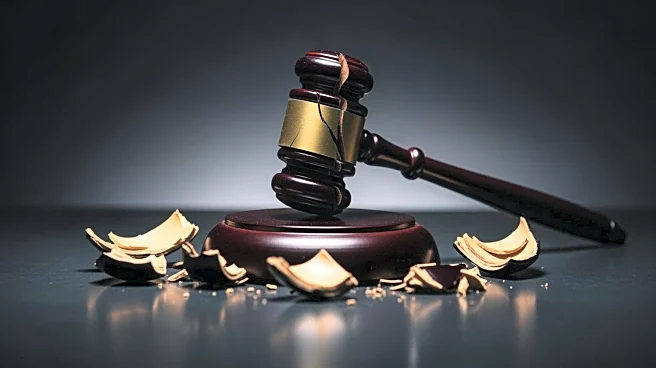What's Happening?
A Texas-based researcher, Lindsey Olson, has filed multiple lawsuits against attorneys representing defendants from the January 6, 2021, Capitol riot. Olson claims these lawyers used her copyrighted research without
permission or payment in their court filings. Her research, a 26-page study, was initially created to support a change of venue for defendants, arguing that Washington, D.C.'s jury pool was biased due to the city's proximity to the events and media coverage. Despite the use of her study, none of the defendants succeeded in changing their trial venues. Olson's lawsuits target several attorneys, including Kira West and Stanley Woodward, alleging they used her work in multiple cases without compensating her. Olson also filed a lawsuit against the Trump administration, claiming federal public defenders misappropriated her research in defending Jan. 6 defendants.
Why It's Important?
The lawsuits highlight the ongoing legal battles surrounding the January 6 Capitol riot and the complexities of intellectual property rights in legal proceedings. If Olson's claims are upheld, it could set a precedent for how research and expert reports are used in court, potentially impacting how defense strategies are formulated in high-profile cases. The outcome may influence the financial responsibilities of legal teams when utilizing third-party research, affecting the cost and approach to defending similar cases in the future. Additionally, the lawsuits underscore the contentious nature of the January 6 trials and the broader implications for legal accountability and ethical standards in the U.S. justice system.
What's Next?
The lawsuits are expected to proceed through the legal system, with potential implications for the attorneys involved and the broader legal community. If Olson's claims are validated, attorneys may need to reassess their use of external research in court filings, possibly leading to stricter guidelines and licensing agreements. The Trump administration's involvement in the lawsuit could also attract significant attention, given the political context of the January 6 events. The legal proceedings may prompt discussions on the ethical use of research in legal defenses and the protection of intellectual property rights.
Beyond the Headlines
The case raises questions about the ethical use of research in legal contexts and the protection of intellectual property. It highlights the tension between legal strategy and intellectual property rights, potentially influencing future legal practices. The lawsuits may also reflect broader societal debates on accountability and transparency in the justice system, particularly in politically charged cases like the January 6 trials.









